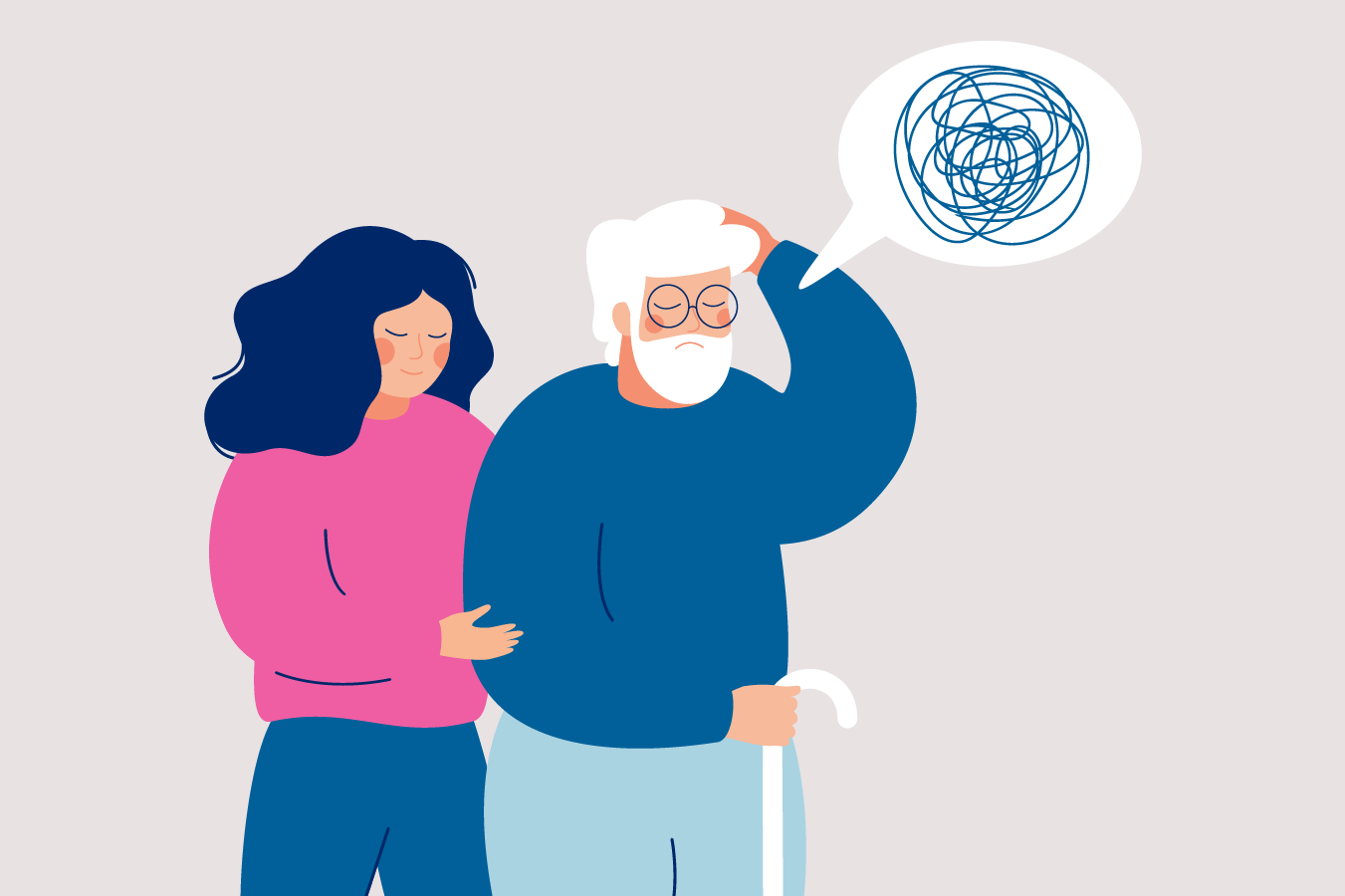
Key facts
- Disorientation occurs when you become confused about the time of day, where you are or even who you are.
- Disorientation is a symptom of many conditions including dementia, sepsis, low sodium levels, illicit drugs and alcohol abuse and withdrawal, or dehydration.
- Treatment of disorientation depends on what has caused it — it usually resolves when the underlying cause has been eliminated.
- If your friend or family member has suddenly become disorientated, they should seek medical attention immediately. It could be a sign that they are unwell.
What is disorientation?
Disorientation occurs when you are confused about the time, where you are or even who you are. It can be caused by a disease, illicit drugs, an infection or one of many other causes.
Signs that a person is disoriented may include:
- an inability to focus their attention
- being ‘slow’ and uncertain
- mumbling and not making sense
- not being able to recognise people they know
- agitation and being upset
- believing they can see things that aren’t really there
A person with disorientation might also experience:
- confusion
- delirium
- delusions
- agitation
- hallucinations
- an inclination to wander
In some people, such as those with dementia, these symptoms might develop slowly. But a person who suddenly becomes confused and disoriented should see a doctor as soon as possible — whether they’re older or young. It could be a sign that they’re unwell.
What causes disorientation?
A common cause of disorientation is dementia, a condition that affects a person’s thinking, behaviour and their ability to perform everyday tasks. People with dementia are more likely to develop delirium when there is a sudden disturbance in their state of mind. This is often caused by an infection or medicines.
Another common cause of disorientation is drugs, especially alcohol or marijuana. It is also a side effect of some medicines.
There are many other causes of disorientation. Some of the more common ones include:
- an infection — for example in the brain, lungs or urinary tract (common in older people)
- hyperglycaemia or hypoglycaemia, when blood sugar levels are too high or too low
- dehydration
- a head injury
- stroke or a TIA (mini stroke)
- not having enough oxygen in the blood — for example, anaemia
- seizure
- low blood sugar in someone with diabetes
Some less-common causes of disorientation include:
- inflammation of the brain (encephalitis) or surrounding membrane (meningitis)
- very low amounts of sodium or calcium in the body
- sepsis (blood poisoning)
- liver failure
How is disorientation treated?
Treatment will depend on the cause of the disorientation. It will often disappear once the underlying cause is treated.
If you are caring for a person with dementia, you can help them by keeping familiar things around them in the house. Arrange furniture and objects so they can find their way around.
People with dementia can suddenly become disoriented, even in previously familiar surroundings. If the person goes out, make sure they carry identification — including their name, address and an emergency contact number.
For more information on disorientation and dementia, visit the Dementia Australia website or call the National Dementia Helpline on 1800 100 500.
Can you prevent disorientation?
You should follow your doctor’s instructions if you are taking medicines to treat the cause of your disorientation.
If the cause is something that can’t be easily treated, talk to your doctor about dealing with disorientation in the future. Let your family know what to do if it happens again


